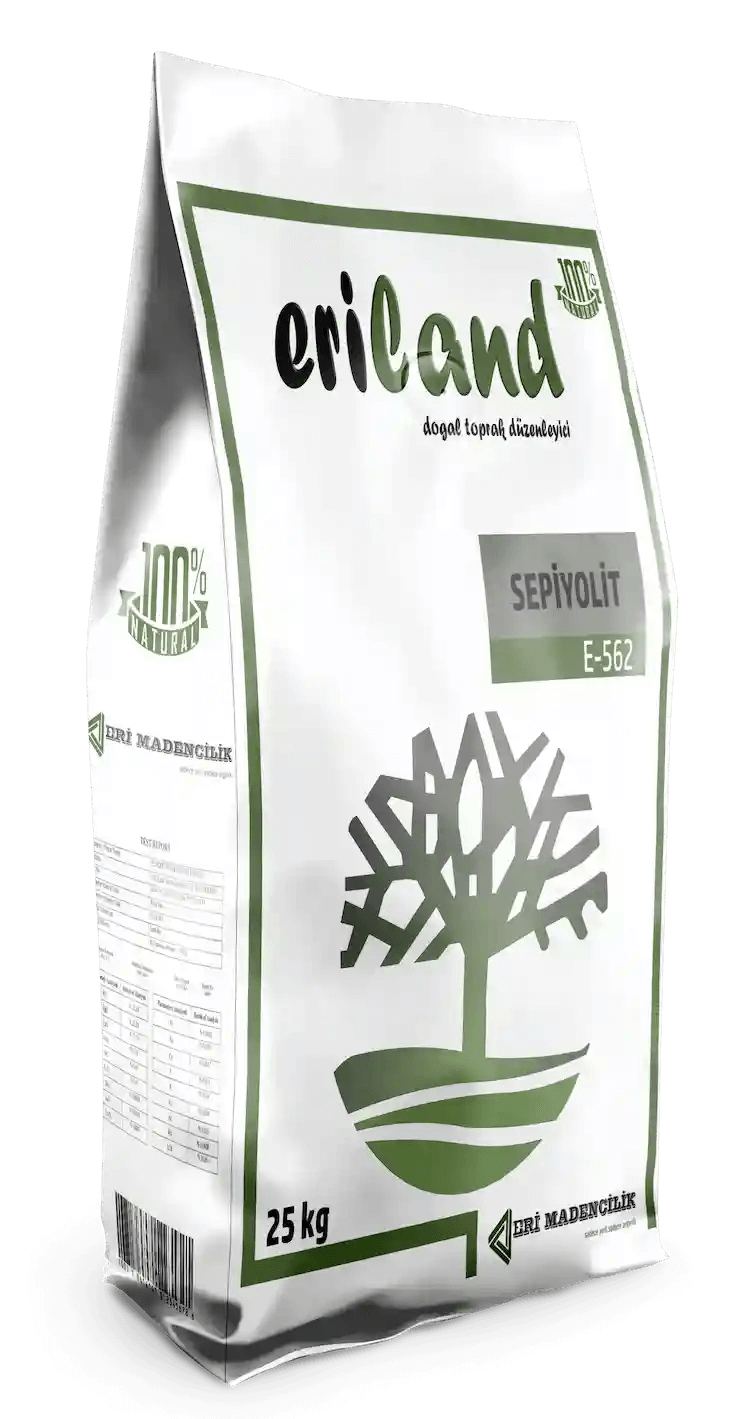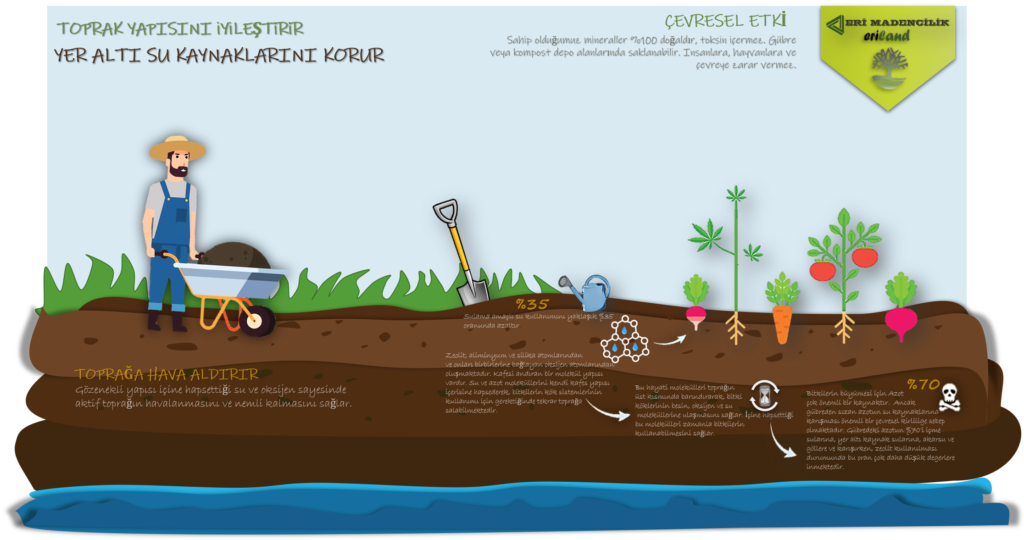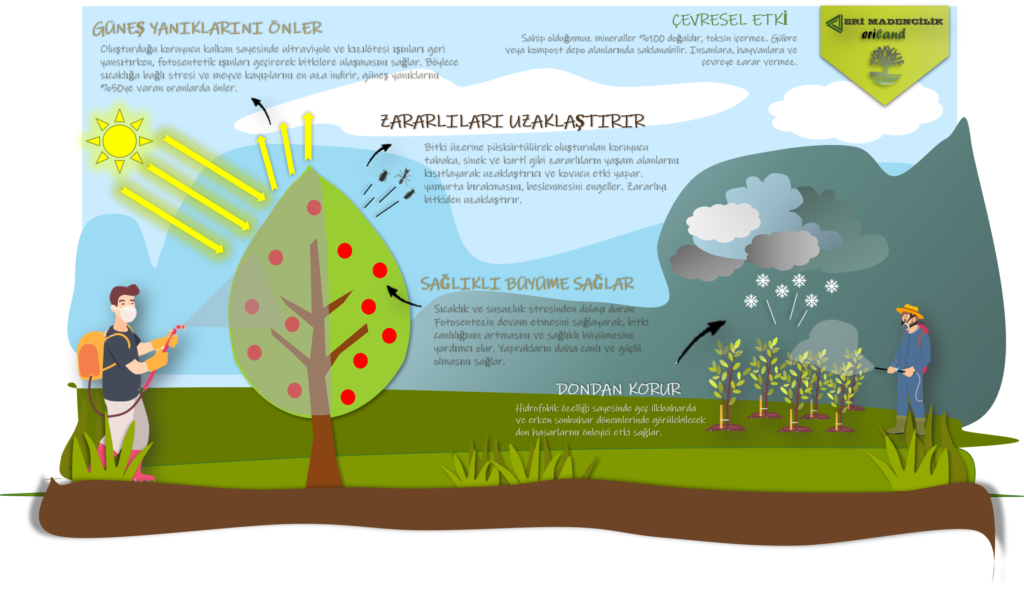EriLand
Natural Soil Improver Mineral
Eriland is made of kaolin, sepiolite, and zeolite, which are completely natural. These minerals boost the soil, save up the water at a 35-40% rates thanks to their capability of water retention, and enable to benefit from fertilizers. Kaolin clay and zeolite clinoptilolite contribute to converting impoverished soils into suitable soils for agriculture. Kaolin has been started to be used commonly by farmers in our country.
- Productive
- Concentrator
- Ventilates the soil



